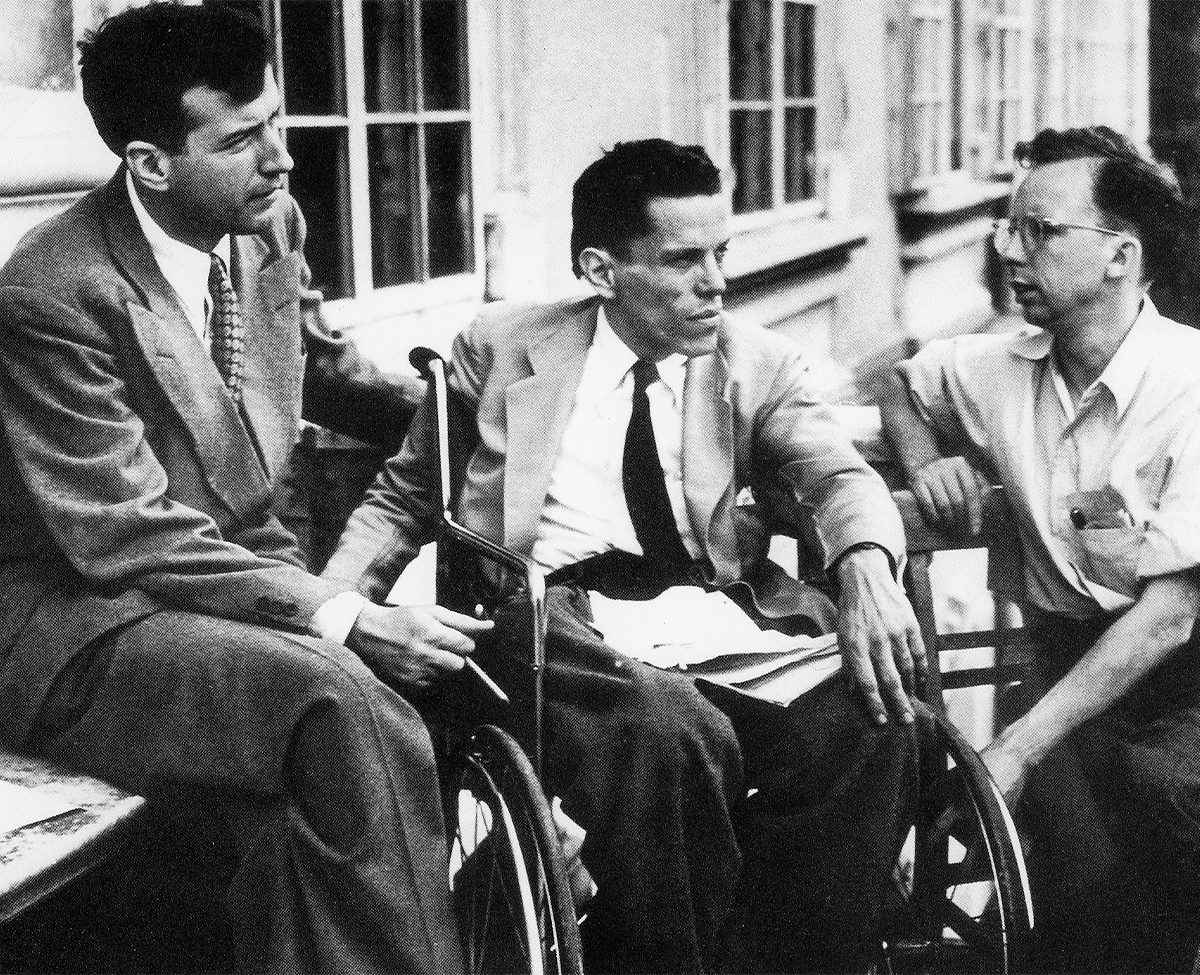History
75 Years in 12 Vignettes
With 75 years behind us and more than 40,000 Fellows in 170 countries, Salzburg Global obviously has many stories to tell. The following 12 vignettes have been selected not only for their ability to relate the history of the institution, but also to convey the unlikely symbiosis of a visionary enterprise, conceived at an American university that came to be situated in an eighteenth-century rococo palace in the heart of Europe with the goal of serving the global good.
Legend has it that Salzburg Global Seminar came to be situated at Schloss Leopoldskron, a rococo palace on a lake outside Salzburg, Austria, following a chance conversation on the Lexington subway line in midtown Manhattan in the first months of 1947. Clemens Heller was a graduate student at Harvard University who was planning a “summer seminar” somewhere in Europe to help revive intellectual dialogue on the war-ravaged continent.
When Clemens encountered Helene Thimig, widow of the palace’s late owner, Max Reinhardt, and a friend of Clemens’ parents, in the New York subway, he told her of his plans. “You must use Max’s Schloss in Salzburg,” Thimig allegedly said. It is a charming anecdote from Salzburg Global’s history, replete with all generosity and serendipity attendant to a founding myth. I once recounted the story to Clemens, who was then in his 80s, to confirm its historical veracity. He responded, as he occasionally did, with an enigmatic, almost impish smile, then changed the subject.
Whatever the mundane realities or practical wranglings, Salzburg Global—first known as Salzburg Seminar in American Civilization—moved into Schloss Leopoldskron in summer 1947 and has been there ever since. It is a rare genius of place and purpose—an 18th century palace constructed as a summer residence for a notoriously hard-hearted Prince-Archbishop—that now serves the global good. For the past 75 years, Salzburg Global has been home to prescient, even prophetic ideas and initiatives, which have helped shape the world as we know it today. Back in the 1950s and 1960s, Seminar faculty member Daniel Bell first framed his vision for a “post-industrial society” in which “intuitive judgements” would be replaced by “algorithms” on globally networked system “hitched to computers”; the concepts of “soft power” as a political tool and “environmental refugees” were explored here in the 1970s and 1980s, by their progenitors, Harvard professor Joseph Nye and pioneer environmental Lester Brown respectively; in the 1990s, Prince Charles allied with Salzburg Global to advocate for sustainable business development, as Kofi Annan did in the early 2000s to help advance the concept of “green agriculture” in Africa.
Disentangling world-shaping ideas from Zeitgeist, or wider networks of intellectual exchange, let alone identifying a direct cause and effect in time and place, is as difficult as parsing short- and long-term global impacts, except perhaps in those rare Archimedes’ Eureka! moments. Correlation, as they say, is not necessarily causation, but intellectual antecedents can be identified and traced. Salzburg Global’s archives, now held in the Harvard University Archives, preserve the early origins of ideas that have helped shape our world over the past seven and a half decades, affirming Salzburg Global’s decades-long institutional mission: “to challenge current and future leaders to shape a better world.”
In the 250 years since its construction, Schloss Leopoldskron has passed through various owners—at one point two local waiters tried to turn it into a spa hotel—until 1918 when the Schloss became the residence of Max Reinhardt, the legendary theatre director and founder of the Salzburg Festival. “I have lived in Leopoldskron for eighteen years, truly lived, and I have brought it to life,” Reinhardt once wrote. “I have lived every room, every table, every chair, every light, and every picture.” Reinhardt called it “the harvest of my life’s work.”
In 2022, Salzburg Global Seminar celebrates 75 years at Schloss Leopoldskron. The following “vignettes” are a “harvest” of moments when Schloss and Seminar appeared to harmonize in common, sometimes near-magical purpose to help “shape a better world.”
Timothy W. Ryback, Salzburg, March 10, 2022
Former Vice President and Resident Director of Salzburg Global Seminar
Salzburg Global Fellow, Session 247, February 1986

